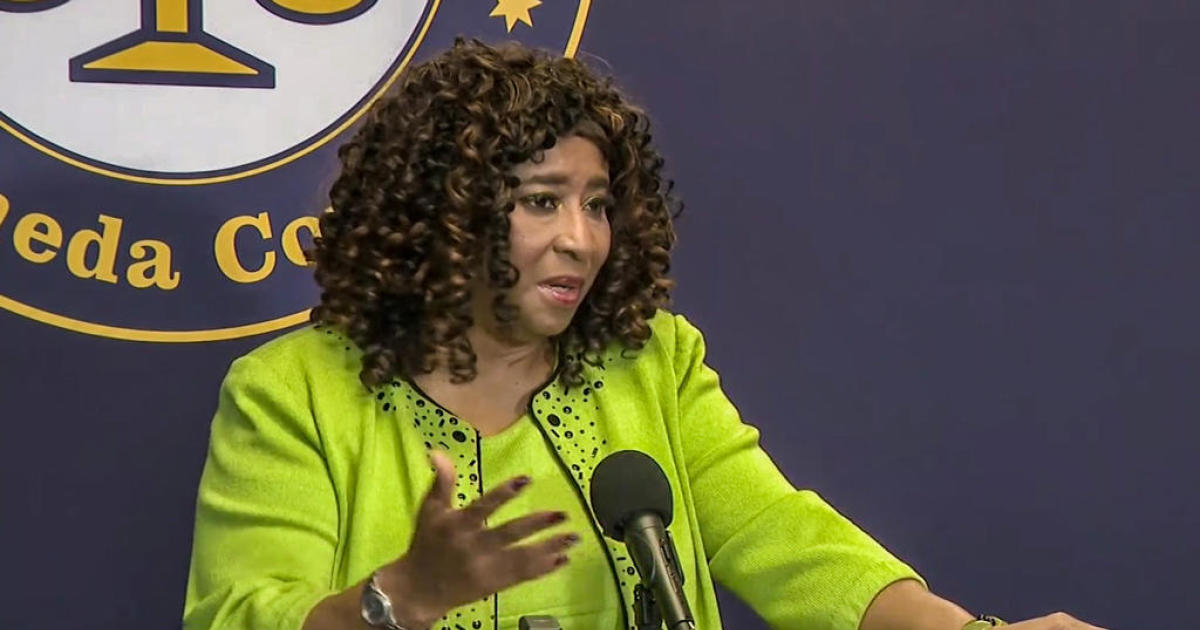West Nile Virus Found in Santa Clara, Sunnyvale Mosquitos
SANTA CLARA COUNTY (BCN) -- Some adult mosquitos in Sunnyvale and Santa Clara have tested positive for the West Nile virus, following positive test results among mosquitos in Gilroy.
Santa Clara County's Vector Control District confirmed this week that West Nile virus-ridden mosquitos were found in portions of the 94086, 94087 and 95051 ZIP codes.
To prevent its spread to humans, truck-mounted spray treatment has been scheduled in the area. Weather permitting, the treatment will start at 10 p.m. on Monday and take a few hours to complete.
The treatment is not particularly dangerous to humans or pets, is approved by federal and state Environmental Protection Agencies and is widely used around California. But those who wish to minimize exposure can close their windows and remain inside during the scheduled period, according to the vector control district.
Those who do have chemical sensitivities, however, may want to consult their physicians.
"Mosquito and West Nile virus activity is normal during the warm months. So, usually between May and September is when their activity is higher," said Beverly Perez, a spokesperson for the vector control district.
But it's not much of a cause for concern, she said. Most people do not develop symptoms, meaning their body is able to fight it off if they do get the virus.
So even if someone was recently bit by a mosquito in those ZIP codes, there is no urgency to get tested or worry unless symptoms start appearing.
"But it's best to contact your physician if you have concerns," Perez said.
Since 2003, Santa Clara County has only had 46 cases, of which one resulted in death, according to state data.
Statewide, 7,360 people have contracted the disease since 2003, of which 339 were fatal. 2015 was the record year for West Nile virus fatalities in California with 53 deaths -- eight of which were in Santa Clara County.
This year so far, there haven't been any human cases reported in the county.
However, when a mosquito transmits it to a person, sometimes it can cause fever, headache, body aches and in severe cases significant neurological damage or death. Those most at risk for severe complications are individuals 50 years and older with certain chronic medical conditions such as diabetes, high blood pressure, cancer, and kidney disease.
"The best thing to do is to take precautions to prevent them (mosquito bites)," Perez said.
The vector control district recommends residents drain or dump standing water on their property weekly because mosquitoes lay their eggs in stagnant water.
Residents should also ensure swimming pool water doesn't fall below the pump circulation area. Free mosquitofish placement can be requested online at www.sccvector.org for placement in neglected pools or ornamental ponds. Screens on doors and windows should also be tight-fitting and in good condition to prevent mosquitos from entering.
Mosquitos that transmit West Nile virus are most active at dusk and dawn, so the district recommends residents limit outdoor activity during that time. And if residents do choose to go outside, it's recommended to wear long sleeves and pants and wear light colors. Insect repellent approved by the EPA is also a good idea, according to the district.
Door hangers will be placed in neighborhoods impacted by the mosquito treatment starting Friday, and residents will also be notified through the AlertSCC emergency alert system, NextDoor networks and to Mailchimp for those who subscribed to notifications.
The treatment is centered at Sunken Garden Terrace and South Wolfe Road and will impact Old San Francisco Road, Reed Avenue, Cassia Way, Lily Avenue, Orchid Drive, and Poinciana Drive to the north and Burnley Way, Lillick Drive, Dunford Way, Marion Way, Carlisle Way, East Fremont Avenue, and Duncardine Way so the south.
The east part of the operation area includes Starbush Drive, Tamarack Lane, Halford Avenue, and Thunderbird Avenue and to the west is Flicker Way, Floyd Avenue, Manet Drive, Remington Drive, and S. Fair Oaks Avenue.
An interactive map of the area can be found at https://arcg.is/1rWanP.
Residents who have questions or concerns relating to the West Nile virus can call a hotline at (408) 282-3114 where vector control staff will be able to answer questions during weekdays from 7:30 a.m. to 4:30 p.m. Questions can also be submitted by email to vectorinfo@cep.sccgov.org.
Those who may be bothered by mosquitos, know of potential breeding sources for mosquitos or other vectors can call the Vector Control District for free assistance with mosquito control. The district can be reached at (408) 918-4770 and service requests can be filled online at www.sccvector.org.
© Copyright 2021 CBS Broadcasting Inc. and Bay City News Service. All Rights Reserved. This material may not be published, broadcast, rewritten or redistributed.



